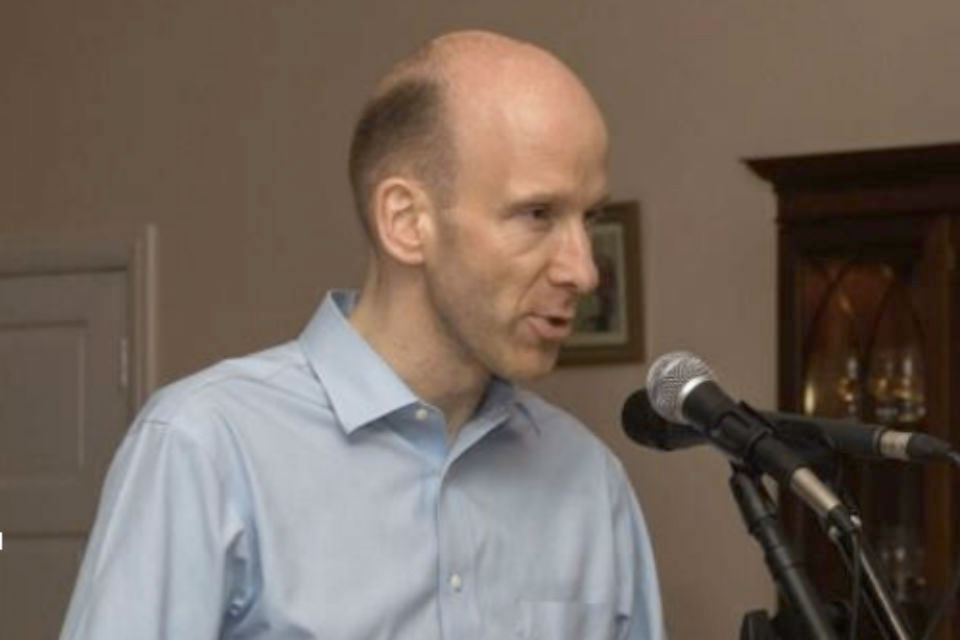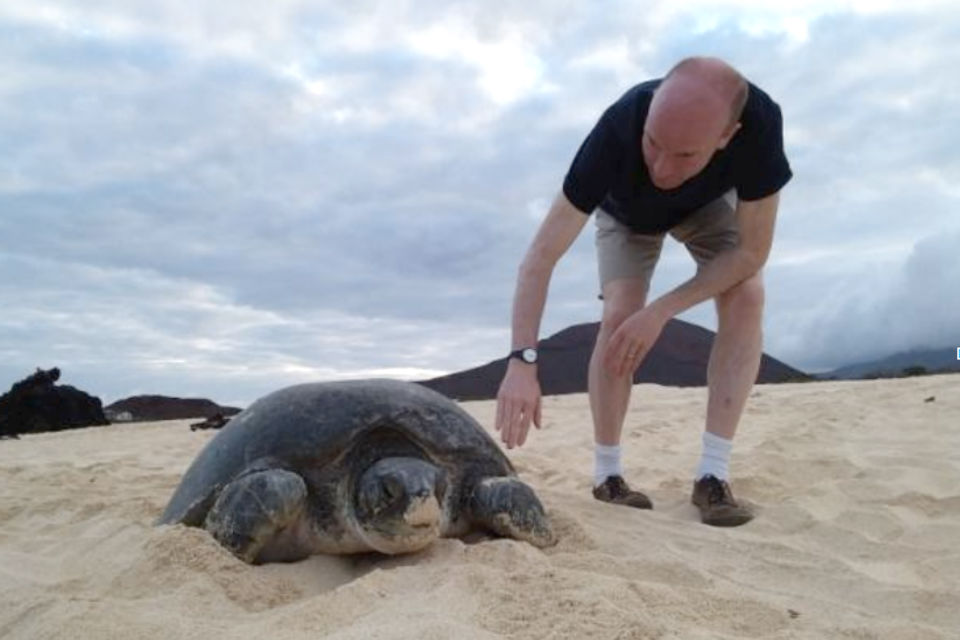
On 16 March, I had the honour of opening a cross-Whitehall conference at the Foreign and Commonwealth Office (FCO) for departmental disability champions. This was staged with the Business Disability Forum, with whom we’ll be developing a disability role-modelling strategy.
I wanted to take the opportunity to blog about my thoughts on role-modelling, set out my experiences and some advice, and hopefully inspire those coming after me.
What is role-modelling?
Saying, “everyone look at how great I am” doesn't come naturally to most of us (civil servants, at least). But when I was asked to be a disability role model for the FCO, I was enthusiastic. I had played a similar role in MOD (which I’m on loan from at present), and for me the role fills a gap I experienced for many years in the Civil Service.
When I joined, I could see numerous challenges in operating with a disability, but just couldn’t see how it was possible, and had no one to emulate. I recently heard of a junior colleague with sight issues in another department who said she’d never heard of a visually impaired person in the Senior Civil Service. So, I want to set that right.

Self-awareness
I am legally blind – I have peripheral vision, so can just about get around but have no central vision. There are clearly things I can’t do very well. I can’t read hard copy, unless it’s hugely magnified (my computer has a voice synthesiser that reads everything out), recognise people or drive.
When I lost my sight aged 18, due to a hereditary genetic condition, I went through the classic grieving process: shock, anger, denial, despair, and so on – but also (after a very long time) acceptance. As that noted philosopher and familiar TV face Ross Kemp once said, “sometimes you’ve got to play the hand you’re dealt”.
Now, if anyone asks if there’s one good thing about being visually impaired, I tend to say no – there are five.
- As a senior visually impaired leader, I metaphorically and literally can’t focus on the detail, and am forced to look at the broader picture.
- When you’ve gone through disablement and come out the other side, you tend to be much more resilient as a result. To borrow from the Disney film Frozen (well, my kids did play the soundtrack non-stop at one point), “it’s funny how some distance makes everything seem small”. Sometimes, you’ve just got to let it go – and that goes as well for taking a more relaxed approach when people make what are usually minor mistakes.
-

Ben Merrick - just off the ship in St Helena I’ve found that my visual impairment has made me more assertive but also more confident. I recently had the good fortune to travel with work via Cape Town on a ship for five days to St Helena in the South Atlantic. I have to admit to feeling somewhat apprehensive about the potential logistical challenges, but I achieved it all by slowing down, relaxing, and being very clear (in a diplomatic way) with people about what sort of help I needed.
- My experiences mean that I am – hopefully – more empathetic, and I found this useful when I used to work as a counsellor at Childline a decade ago.
- I can’t use notes easily, so have to know my subject better when doing public speaking, or at least have a structure and key messages in my mind and talk around them. All of which, I think, helps me connect more directly with the audience.
Keep learning
To my mind, role-modelling is not about perfection or infallibility. I do make mistakes from time to time, but the key is to apologise, fix the problem if at all possible, learn from it, and move on.
I’m on the Senior Leaders Scheme (designed to develop deputy directors to director level) and aspire to make the step up for my next post. One of the many benefits for me of this sort of opportunity is to embed a passion for constant learning, and I encourage that in everyone, disabled or not.
Don’t worry, be happy
Finally, frustration is a daily experience for the disabled. But I’m a big advocate of counting your blessings, if possible. When I visited St Helena I was fortunate enough to be taken to see its stunningly beautiful scenery.
And when I went to Ascension Island, an initially unwelcome delay to my plane home meant I was able to witness the annual nesting season for the sea turtles on the beaches at sunrise. And I helped to rescue one sea turtle that would otherwise have died on the rocks.

I would encourage all of you who read this to develop your self-awareness, optimise your strengths (some of which may be unexpected), learn and accentuate the positive.

12 comments
Comment by Charlotte Smith posted on
I can empathise with this as well. I also have multiple disabilities, and only having sight in one eye is one of them. That presents a whole host of challenges. It is great to see how Ben is able to cope with this. As for myself at work, i do use zoomtext which is great.
I think it goes without saying that those of us who do have disabilities out of necessity have to be assertive. Because it is a cruel world, and discrimination is rife. So you have to be able to stand up for yourself.
Comment by Lesley posted on
Love these blogs, inspiring and motivating, thank you.
Comment by Graham Bavington posted on
Hi Ben, thanks for sharing this with us. People like myself with disabilities who come across some barriers will always find another way round it. I was born partially deaf, learned to lip read and now have a cochlear implant which is fantastic. I'm learning to play the piano now! I wish I had the implant years ago.
Comment by Simon Monk posted on
This is a great read, I absolutely agree in that it is sometimes easy to start feeling sorry for ones self and I have over indulged in this regard. I end up complaining to my wife and I realise its not fair on her. I used to be mega fit and this was a big hobby for me but one mechanism i use is to say to myself that further down the line there might be something developed that can help me with my knee. There may be a procedure that improves my situation - who knows? I do offer my support to anyone who wishes to chat when they are feeling down.
Comment by Natasha posted on
You are an inspiration, Ben. Thank you for sharing. 🙂
Comment by Ben Good posted on
Ben, I too have RP with no central vision. Having met you at the FCO event I would just like to say that, as a role model for HMRC, you inspired me. Thank you. I hope I can be as inspirational to my colleagues.
Comment by Gavin Thomas posted on
Thank you Ben for sharing your experience and both the highs and the lows. I hope that the way that you have not only sought to overcome the challenges that you faced but to also look to support your colleagues will inspire others.
As someone whose parents came from St Helena, it was also interesting to hear about your travels and I am glad that you were able to appreciate the beautiful scenery.
Comment by Karen Deus posted on
Thank you for being so honest and so positive 🙂
I am going through the anger v acceptance stage having had a very recent and therefore rather raw MS diagnosis . My philosophy comes from John Lydon "Anger is an energy"
Comment by Henry F posted on
Thank you for writing this, Ben. As a humble AO, it's great to see other people with sight loss excelling in the Civil Service. If you ever fancy mentoring, do let me know. Henry
Comment by Grace posted on
Thanks for sharing your story Ben - I think there are lots of your messages that everyone can learn from regardless of whether we have a disability or not, particularly around the resilience.
Really great to see such an open blog - thank you again.
Comment by Helen Lederer posted on
Uplifting, inspiring and just plain sensible wisdom for all to follow...
Comment by Bharat Mankad posted on
Ben,
Your article is an inspiration to we all visually impaired. I fully agreed that we should apologise when do any mistake, as due to our disability this would be obvious.
I am by birth registered partially sighted and photophobia i.e. sensitive to daylight. I did came across lots of barriers to be a solicitor in UK eventually.
Best wishes.